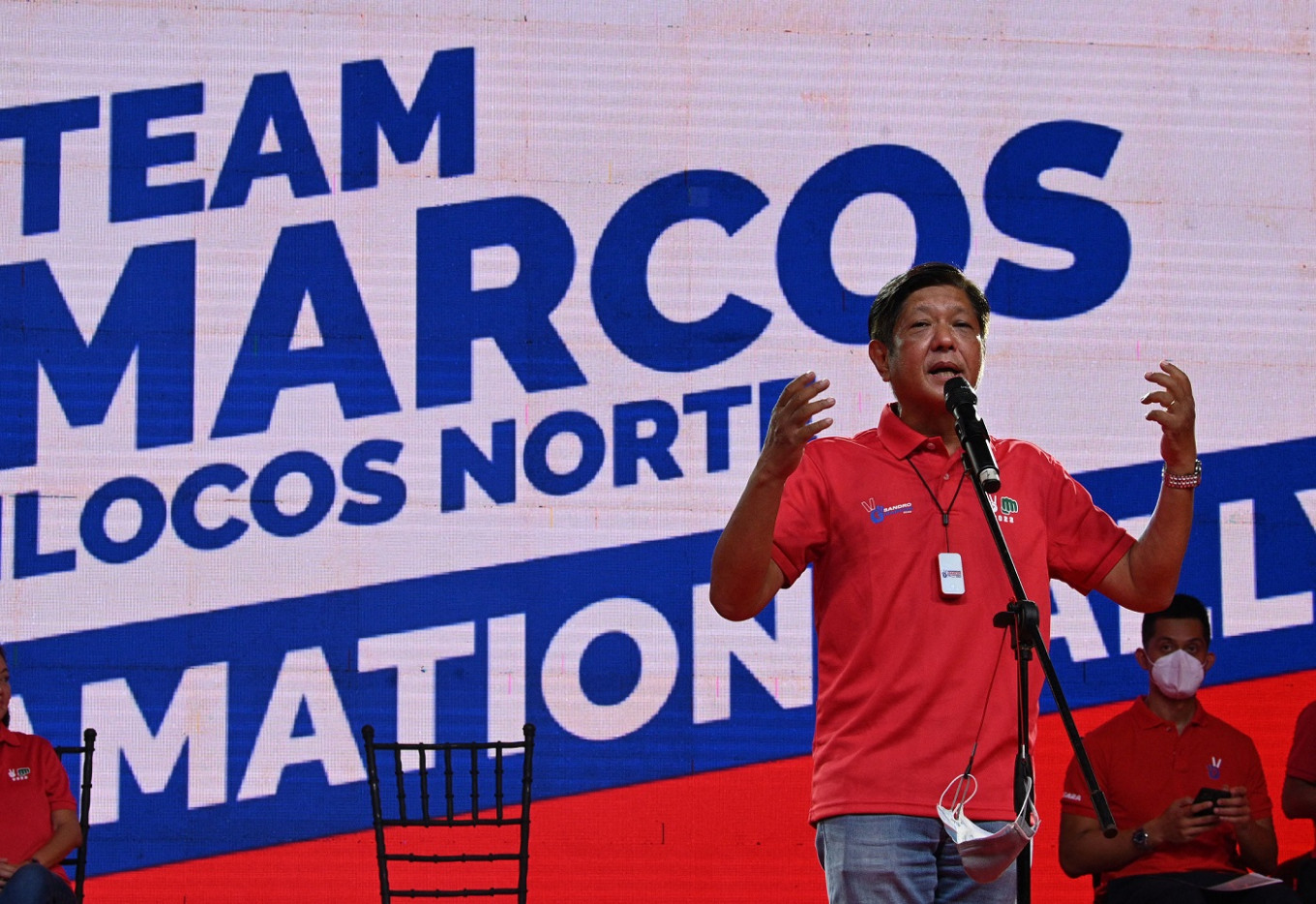Popular Reads
Top Results
Can't find what you're looking for?
View all search resultsPopular Reads
Top Results
Can't find what you're looking for?
View all search resultsMarcos’ 'people power'
ASEAN states may need to sit up and batten down if the junior Marcos' successful presidential bid spells a return of political dynasties in the Philippines.
Change text size
Gift Premium Articles
to Anyone
F
erdinand “Bongbong” Marcos Jr has almost definitely won the May 9 presidential election by a landslide. The son of the late dictator, Ferdinand Marcos, will lead the Philippines for the next six years.
It should be a glorious moment for the former first family that was forced to flee to the United States in 1986, from a street protest that forced an end to Marcos Sr’s 21-year rule. But the return of the Marcos dynasty is also alarming for the sustainability of democracy and respect for human rights, not just in the Philippines but in the region as a whole.
It was the elder Marcos who ordered the killing of Benigno Aquino Jr just a few minutes after the opposition leader alighted from his plane at Manila International Airport on Aug. 21, 1983. Less than three years later, Marcos had fallen from grace and he and his family fled to escape the bloodless “People Power Revolution”.
Marcos was accused of corruption and human rights violations against anti-government activists. But until his death on Sept. 28, 1989 in exile in Honolulu, Marcos never faced justice.
The post-Marcos Philippines then saw Corazon “Cory” Aquino, the wife of Aquino, and the couple’s son Benigno Aquino III elected to the presidency.
The People Power Revolution inspired many of the world’s developing countries, including Indonesia, where a similar movement forced dictator Soeharto to step down after 32 years. Soeharto and his family also faced accusations similar to that leveled against the Marcoses, but no court has ever proven their guilt.
There are indications that Bongbong will emulate his father’s brutal rule, as he has said he will continue the draconic policies of his predecessor, Rodrigo Duterte. The outgoing president used guns and violence in eradicating crime and drugs. Now, Duterte’s daughter Sara, Bongbong’s political ally, looks certain to become the next vice president.
Bongbong’s victory will haunt thousands of people whose family members were killed or tortured during his father’s rule. Whether he restores his father’s iron-fist government, his election underscores the return of political dynasties and bodes ill for the region.
The Philippines is ASEAN’s oldest democracy. Indonesia only started down this path in 1998 and now takes pride of place as the world’s third largest democracy, only after India and the United States. But the region is also experiencing a speedy democratic decline thanks to the dominance of oligarchs and the military.
Bongbong’s win is actually unsurprising because he has held various public roles, such as governor, senator and congressman; ironically, thanks to democracy. His mother Imelda and his other siblings have also been active in national politics.
Philippine voters elected Bongbong because they longed for a strong leader of the same cloth as Marcos Sr and Duterte. After 36 years, it seems the Philippines as a whole have forgiven his father’s brutality and greed.
Bongbong has six years to prove if he is better than his father as his administration proves its commitment to bringing the 10-member ASEAN closer to its vision of becoming a regional community. China is also waiting for his foreign policy direction after enjoying a relatively cordial relationship with outgoing President Duterte, though it seems Bongbong will maintain Duterte’s soft approach to China.
There are reasons to believe the Philippines might again fall into the grip of political dynasties. And this wind could blow to its neighbors, including Indonesia.











